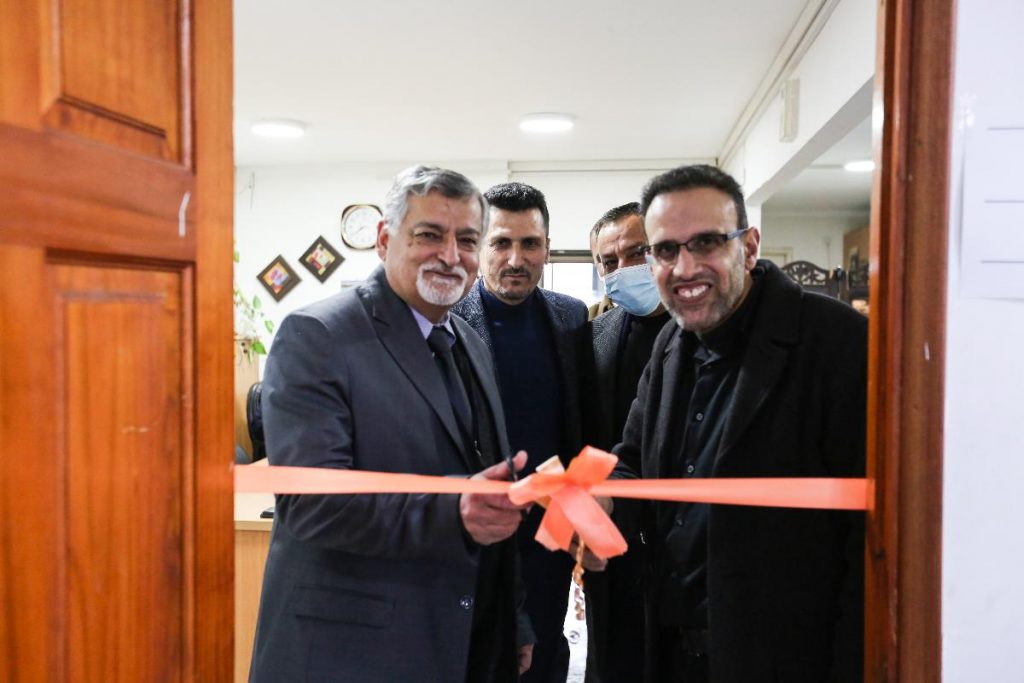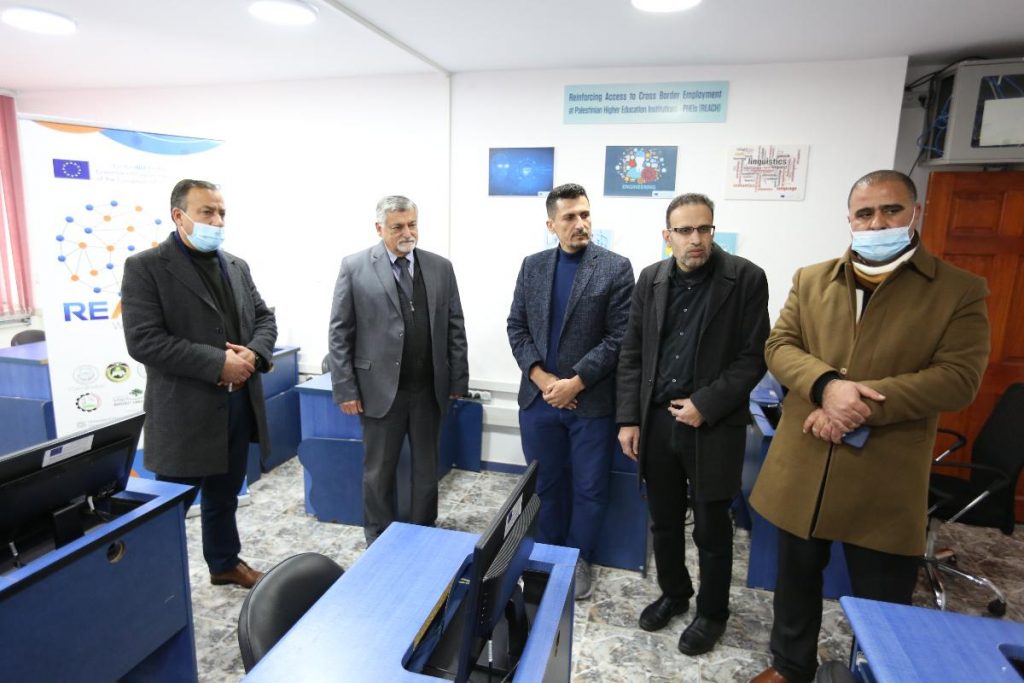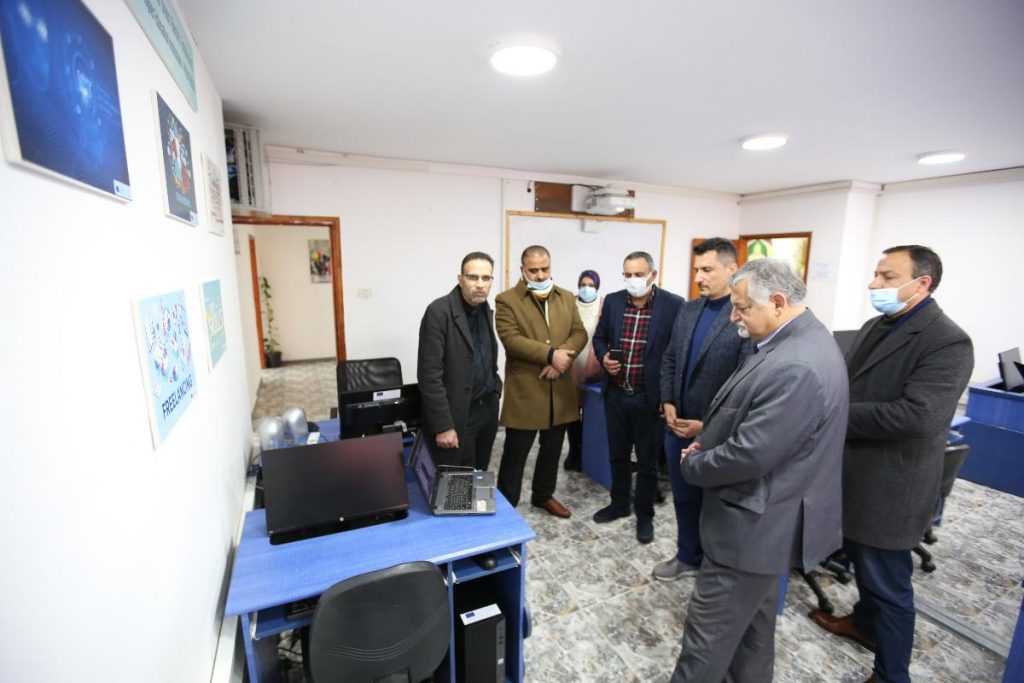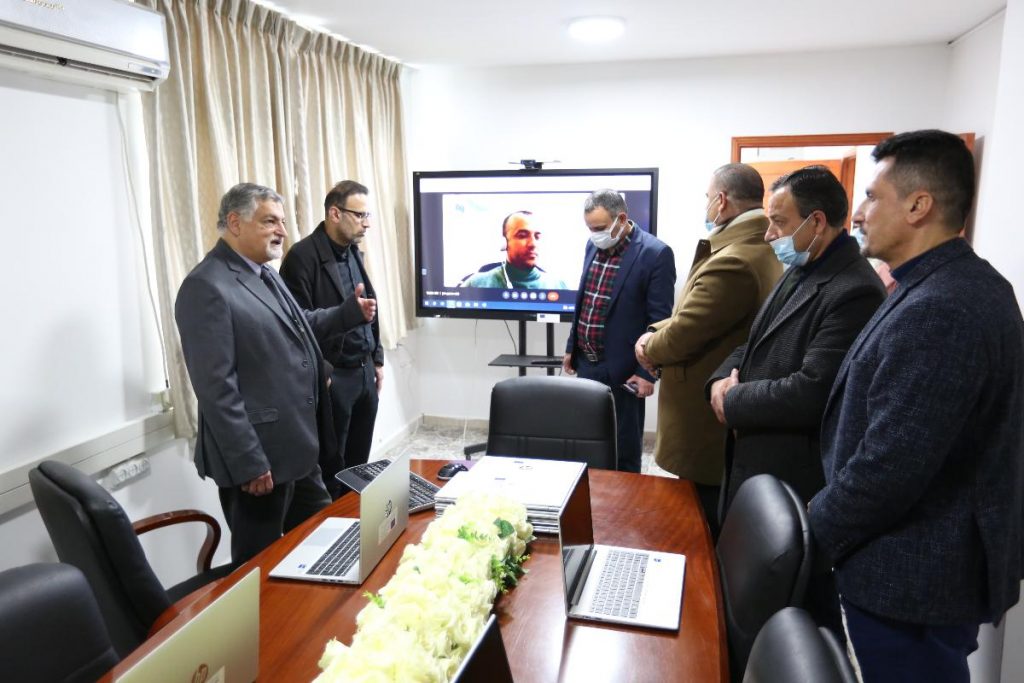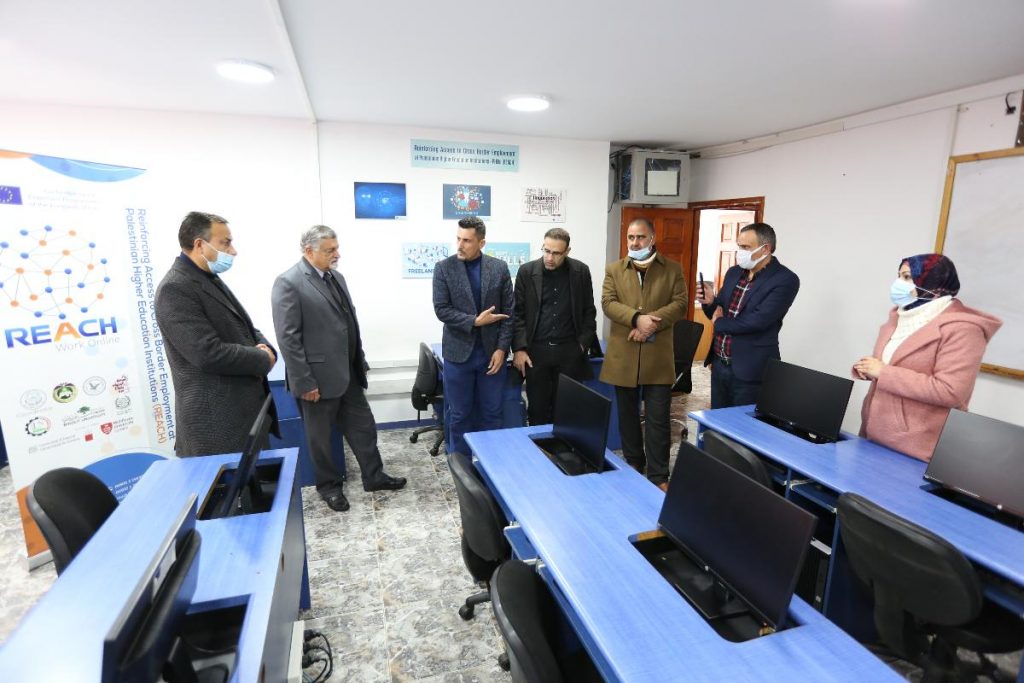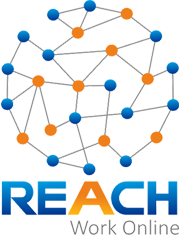The Center for Continuing Education and Community Service in Ramallah and Al-Bireh Governorate inaugurated a laboratory for the project “Reinforcing Access to Cross Border Employment at Palestinian Higher Education Institutions (REACH)” on Saturday, February 5, 2022.
The laboratory was inaugurated by the President of the University, Prof. Samir Najdi, the Project Manager, Dr. Sadiq Abdel-Aal, and Dr. Mahmoud Hawamdeh, Director of the Center for Continuing Education and Community Service.
This laboratory is one of the outcomes of the “REACH” project, which was funded by “Erasmus +” in the framework of building the capacities of Palestinian higher education institutions in collaboration with five Palestinian universities and five European universities. The project will provide integrated digital services to increase and expand employment opportunities for graduate students at Palestinian universities, with the goal of promoting a culture of cross-border work.
Prof. Najdi said: “We are partners in many national and international universities, and we are proud of this partnership as this laboratory represents a leap from the present to the future.” Prof. Najdi added, “Al-Quds Open University places a high value on this field, and it is essential to us that the project succeeds and our students are qualified to work in international institutions. This project has a brilliant future and great interest on the part of the university and various institutions in Palestine, whether governmental or private.
Dr. Mahmoud Hawamdeh, for his part, emphasized that the laboratory will contribute to providing unconventional job opportunities for graduate students, especially since work in the laboratory is based on remote work, indicating that this is the fifth project implemented in collaboration with the “Erasmus+ project.”
Ms. Samar Khadraj, the Project Coordinator at the Center for Continuing Education and Community Service, gave a project overview presentation, stressing that the Center will provide integrated digital services to increase the opportunities for graduate students to have jobs. “We will now move to create a base of experts and trainers in several fields, including information and communication skills, engineering, linguistic translation, personal skills, and free trade, training them by European experts,” adding, “In the next phase, graduate students will be trained to provide them with the necessary skills and knowledge, each according to his or her specialization in line with market needs.”
